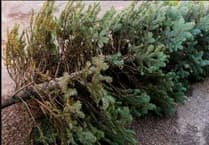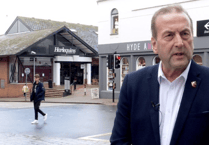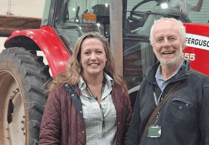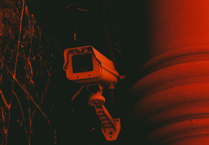WHEN Devon mum Karen Williams was delivered the news that she had cancer – her first thoughts were ‘can I still compete in national archery competitions’.
For the 53-year-old who is from Dawlish Warren had taken part in the national sport since picking up her first bow back in 2007. But her breast cancer diagnosis left her feeling anxious that she would never shoot another arrow again.
Karen said: ‘It may sound strange, but I was so worried that I wouldn’t be able to go back to archery again. ‘I compete at a high level and whilst others may have concerns around hair loss, mine was more about being able to do a sport I love and maintain my level of fitness so I could continue to play and enter competitions.’
The training and equality manager, is sharing her story during Breast Cancer Awareness Month. Now on a phased return to work, she owes her life, thanks in part, to the work of Cancer Research UK, after taking a drug the charity helped develop – Tamoxifen.
It was Cancer Research UK scientists who first pioneered hormone treatments for cancer including the drug Tamoxifen. This drug blocks the hormone oestrogen from reaching cells. This is particularly useful as around eight out of 10 breast cancers are oestrogen receptor positive, with oestrogen fuelling their growth.
Karen is urging people across Devon to give regularly to Cancer Research UK to help fund long term research projects that could drive new breakthroughs.
Life-saving cancer treatments are made by months and months of trialling, testing and learning. But monthly progress in research needs monthly donations.
With around 36,300 people diagnosed with cancer every year in the South West, Karen’s message is clear – to save lives tomorrow, Cancer Research UK needs the public’s support today.
Karen said: ‘My cancer nurse was great and encouraged me to talk about the importance of my archery and what it means to me, which gave me the courage to continue with it.
‘It’s astounding that I am still able to continue with the sport and having a purpose to get back into it, which helps keep anxiety levels down and is so important for my wellness and it kept me strong during my treatment.
‘But special moments like these would not be possible without the dedication of scientists who are relentlessly striving towards new discoveries and milestones month after month. This vital work needs our support,’ explains Alison Birkett, spokesman from the charity.
Karen and her husband Scott are members of Exmouth Archers and Devon and Cornwall Archery Society. They compete at regional and national level and are proud to be part of the Devon and Cornwall team which won the Grand Western regional intercounty tournament last month.
She continued: ‘I have been supported by several women friends and relatives who have had breast cancer. They have been an amazing support network. They are all at different stages of treatment and we have had different treatment pathways. They are all still here to advise and help me because of the amazing developments in breast cancer treatment through cancer research.
‘By making a monthly donation to Cancer Research UK, people across Devon could help give hope to many more families like mine and invest in long term research that could save lives for generations to come.’
Thanks to the generosity of its supporters, Cancer Research UK was able to spend over £2 million in the South West last year on some of the UK’s leading scientific and clinical research.
While 2022 marks the charity’s 20th anniversary, its history dates back to the founding of the Imperial Cancer Research Fund in 1902. During this time, its work has led to more than 50 cancer drugs used across the UK – and around the world – from widely used chemotherapies to new-generation precision treatments.
In fact, drugs linked to the charity are used to treat more than 125,000 patients in the UK every year – that’s three out of every four patients who receive cancer drugs on the NHS.
Cancer Research UK spokesperson for the South West, Alison Birkett, said: ‘One in two of us will get cancer in our lifetime, but all of us can help beat it. As we mark our 20th anniversary, we’re reflecting on how far we’ve come thanks to supporters like Karen. From proving the link between smoking and cancer to laying the foundations for modern radiotherapy, our scientists have been at the forefront of cancer research for 120 years. And we’re not stopping now.
‘Monthly donations make a huge difference to advances such as this, because they allow us to plan for the future - and the more we can plan, the more projects we can fund to unlock more of cancer’s secrets. So we hope people will give regularly to the charity, if they can.
‘We’re working towards a world where we can all live longer, better lives, free from the fear of cancer. Beating the disease is a long game, but it’s one that – together - we will win.’





Comments
This article has no comments yet. Be the first to leave a comment.